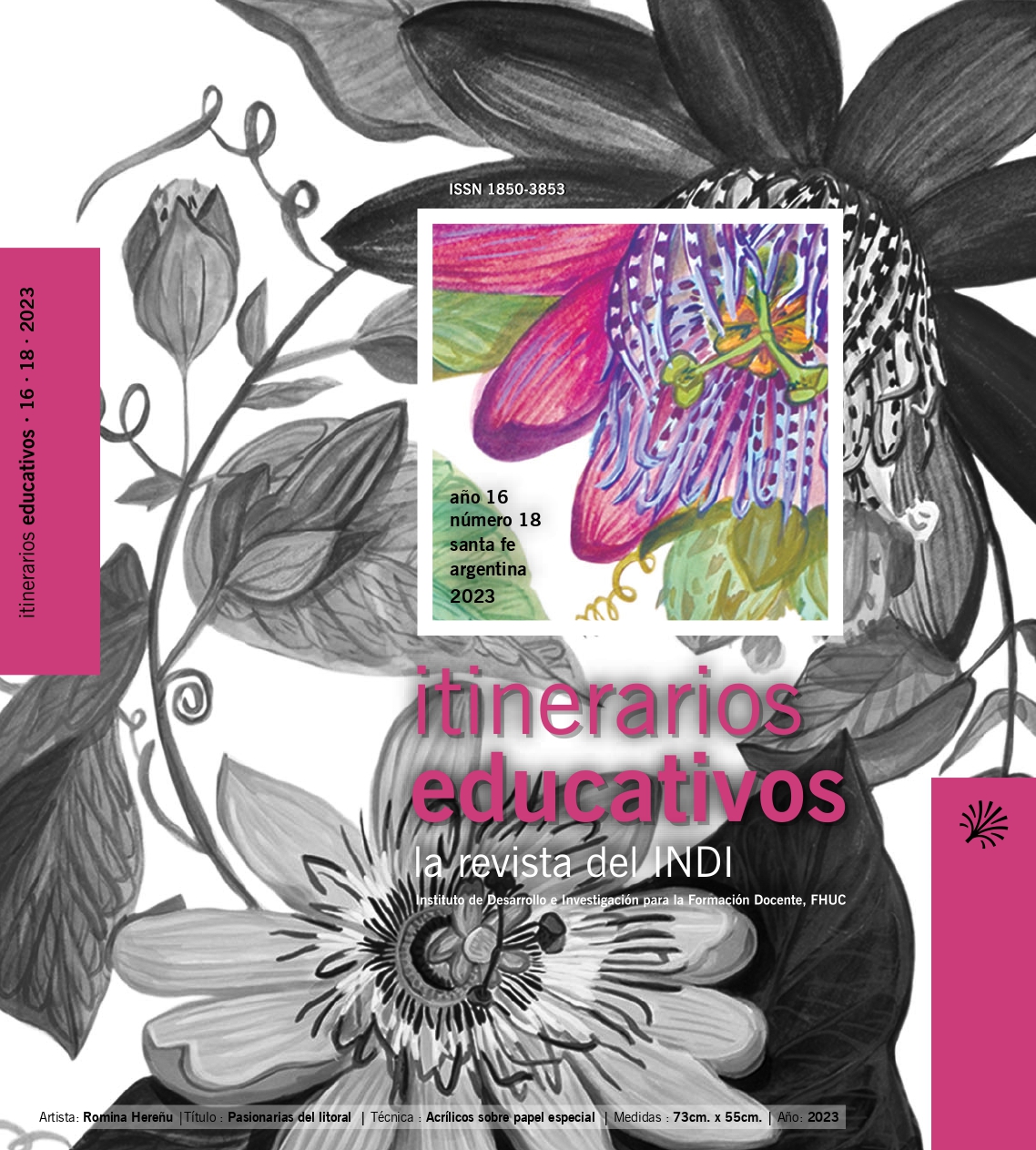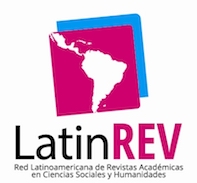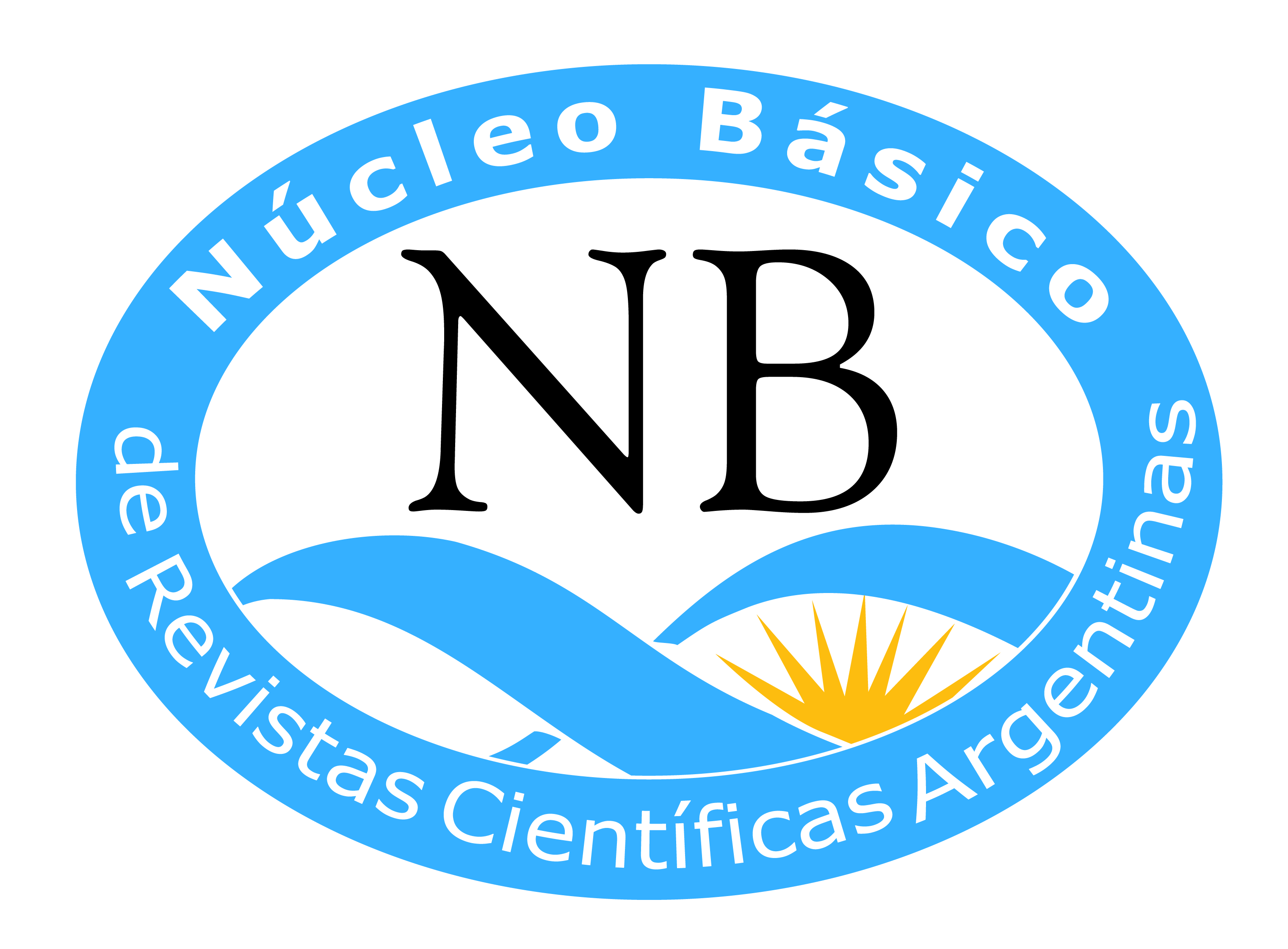ESI and Pending Lessons: A Biographic Narrative Approach to Comprehensive Sexual Education with High School Teachers in Mar del Plata, Argentina
DOI:
https://doi.org/10.14409/ie.2023.18.e0046Keywords:
comprehensive sexual education, teacher education, biographic narrative research, un–learningAbstract
This project delves into the construction of teacher subjectivity in the context of a teacher–education research tradition at a State University in Argentina. Through the analysis of four brief stories, the article explores the experiences of female professors in regard to Comprehensive Sexual Education (ESI) from feminist–critical and queer perspectives. In Argentina, the Law that regulates ESI was passed almost twenty years ago; however, advancements in the rights involved have been modest. This qualitative research project tries to shed light on this state of the art, appealing to auto–biographic narrative research to understand both resistance and breakthroughs in this area. The most interesting findings reveal that the prevalence of conservative sexual biases seems to be the result of efficient educational moves —especially those which are silent and abound in the immanence of everyday life— and that personal crises are particularly valuable to interrupt common sense and trigger interest in Comprehensive Sexual Education.
References
Ahmed, S. (2019). Fenomenología queer: orientaciones, objetos, otros. Trad. Javier Sáez del Álamo. Barcelona: Ediciones Bellaterra.
Ahmed, S. (2020). La promesa de la felicidad. Una crítica cultural al imperativo de la alegría. Buenos Aires: Editorial Caja Negra.
Apple, M. (2015). Conocimiento, Poder y Educación: sobre ser un académico/activista. Revista Entramados– Educación y Sociedad, (2), 29–39.
Apple, M. (2008). Ideología y Currículo. Madrid: Akal
Barad, K. (2007). Meeting the universe halfway: Quantum physics and the entanglement of matter and meaning. Durham, NC: Duke University Press.
Berlant, L. (2020). El optimismo cruel. Trad. Hugo Salas. Buenos Aires: Caja Negra Editora.
Blázquez, G. (2020). Metodologías horizontales y conocimientos excitados. Cornejo, I. & Rufer, M. Horizontalidad: hacia una crítica de la metodología. CABA: CLACSO; México: Centro de Estudios Latinoamericanos Avanzados.
Bolívar, A & Domingo, J. (2006). La investigación biográfica y narrativa en Iberoamérica: Campos de desarrollo y estado actual. Forum: Qualitative Social Research Vol. 7 nro 4, art. 12. (ISSN 1438–5627)
Bourdieu, P. (2008). El sentido práctico. Barcelona: España Editores.
Bruner, J. (1991). Actos de Significados. Madrid: Alianza.
Castro–Gómez, S. (2005). La hybris del Punto Cero: ciencia, raza e Ilustración en la Nueva Granada (1750–1816). Bogotá: Editorial Pontificia Universidad Javeriana.
Cuello, N. (2020). Presentación: El futuro es desilusión. En Ahmed, S. La promesa de la felicidad. Una crítica cultural al imperativo de la alegría (pp. 11–20). CABA: Caja Negra.
da Silva, T. (1999). Documentos de Identidad. Una introducción a las teorías del currículo. Autêntica.
Davini, C. (1995). La formación docente en cuestión: política y pedagogía. Buenos Aires: Paidós.
Denzin, N. & Lincoln, Y. (2011). El campo de la investigación cualitativa. Manual de investigación cualitativa. Vol. I. Barcelona: Gedisa.
Ellis, C.; Adams, T. & Bochner, A. (2010). Autoethnography: an overview. Forum: Qualitative Sozialforschung/ Forum: Qualitative Social Researh, 12 (1).
Federici, S. (2010). Calibán y la bruja. Mujeres, cuerpo y acumulación originaria. Madrid/Buenos Aires: Traficantes de sueños/Tinta Limón.
Federici, S. (2022). Ir más allá de la piel. Repensar, rehacer y reivindicar el cuerpo en el capitalismo contemporáneo. Ciudad Autónoma de Buenos Aires: Tinta Limón.
Ferrera–Balanquet, R. (2015) (Comp.) Andar erótico decolonial: el desprendimiento. Buenos Aires: Ediciones del signo.
Flores, V. (2013). «Interruqciones». Ensayos de poética activista. Escritura, política, pedagogía. Neuquén: La Mondonga Dark.
Fulco, V. (2018). La educación sexual integral será feminista o no será. Revista Mora 25 (1): 243–248.Buenos Aires: IIEG. FFyL–UBA.
Giroux, H. (1990). Los profesores como intelectuales. Paidós.
Guba, E. & Lincoln. Y. (2012). Controversias paradigmáticas, contradicciones y confluencias emergentes. En Denzin, N. & Lincoln, Y. (Comps.), Paradigmas y perspectivas en disputa. Manual de investigación cualitativa. Vol. II (pp. 38–78). Barcelona: Gedisa.
Halberstam, J. (2018). El arte queer del fracaso. Trad. J. Sáez. Barcelona: Egales editorial.
Haraway, D. (1988). Situated Knowledges: The Science Question in Feminism as a Site of Discourse on the Privilege of Partial Perspective. Feminist Studies, 14 (3):575–99.
Haraway, D. (1997). Modest_Witness@. New York, London: Routlege.
hooks, B. (2016). Eros, erotismo y proceso pedagógico. En Herczeg, G. (Comp.), Pedagogías transgresoras (pp. 3–12). Córdoba: Bocavulvaria.
Jackson, P. (1994). La vida en las aulas. Madrid: Morata.
Kuby, C. & Christ, R. (2018). Productive Aporias and Inten(t/s)ionalities of Paradigming: Spacetimematterings in an Introductory Qualitative Research Course. Qualitative Inquiry, Vol. 24 (4), 293–304.
Louro, G.L. (2018). Pedagogias da sexualidade. En G. L. Louro (org.), O corpo educado: pedagogias dasexualidade (pp. 9–42). Belo Horizonte: Autentica. [1999]
Maffia, D. (2016). Contra las dicotomías: feminismo y epistemología crítica. En Korol, C. (Comp.) Feminismos populares. Pedagogías y políticas (pp. 139–153). CABA: El Colectivo; CABA: Editorial Chirimbote; CABA: América Libre.
McLaren, P. & Kincheloe, J. (2008) (eds.). Pedagogía Crítica. De qué hablamos, dónde estamos. Barcelona: Grao.
Morgade, G. (2010). Formación docente y relaciones de género: aportes de la investigación en torno a la construcción social del cuerpo sexuado. IICE Revista del Instituto de Investigaciones en Ciencias de la Educación, Vol. 28, 117–133.
Morgade, G. (Comp.) (2011). Toda educación es sexual: hacia una educación sexuada. Ciudad Autónoma de Buenos Aires: La Crujía
Morgade, G. (Comp.) (2021). ESI y formación docente. Mariposas Mirabal. Experiencias en foco. Rosario: HomoSapiens Ediciones.
Morgade, G. (Comp.) (2018). A 12 años de la ley de ESI. Las políticas, el movimiento pedagógico y el discurso Anti–ESI recargado. CABA: Observatorio Participativo de Políticas Públicas en Educación (OPPPEd)– FFyL–UBA
Morgade, G. & Alonso, G. (comps.) (2008). Cuerpos y sexualidades en la escuela. De la "normalidad" a la disidencia. Buenos Aires: Paidós.
Muñoz, J.E. (2020). Utopía Queer: El entonces allí de la futuridad antinormativa. Buenos Aires: Caja Negra.
Porta, L. & Yedaide, M. (2014). La investigación biográfico narrativa. Desafíos ontológicos para la investigación y la enseñanza en la formación de formadores. Revista Sophia: colección de Filosofía de la Educación, 17(2), pp.177–193.
Porta, L. (2021). La expansión biográfica. Buenos Aires: EUDEBA
Porta, L. y Yedaide, M. (comps.) (2017). Pedagogía(s) vital(es): Cartografías del pensamiento y gestos ético–políticos en perspectiva descolonial. Mar del Plata: EUDEM.
Preciado, P. B. (2008). Testo Yonqui. España: Espasa.
Ramallo, F. (2019). Paulo Freire con glitter y pañuelo verde: notas cuir para educadores. Série–Estudos, Campo Grande, MS, Vol. 24 (52), 101–122.
Ramallo, F. (2020). ¿Cuál es el lugar de la pedagogía? Notas para desidentificar su disciplinamiento. Revista Brasileira de Pesquisa (Auto)Biográfica, Salvador, vol. 5 (14), 889–899.
Richardson, L. & St. Pierre, E. (2005). Writing: A Method of inquiry. En Denzin N. & Lincoln Y. (Eds), The SAGE Handbook of Qualitative Research. USA: Sage.
Rolnik, S. (2019). Esferas de la insurrección: Apuntes para descolonizar el inconsciente. Buenos Aires: Tinta Limón.
Segato, R. (2003). Las estructuras elementales de la violencia. Ensayos sobre el género entre la antropología, el psicoanálisis y los derechos humanos. Buenos Aires: Universidad Nacional de Quilmes Editorial.
Segato, R. (2013). La crítica de la colonialidad en ocho ensayos. Y una antropología por demanda. CABA: Prometeo.
Segato, R. (2018). Contra–pedagogías de la crueldad. Ciudad Autónoma de Buenos Aires: Prometeo Libros.
St. Pierre, E. (2017). Haecceity: Laying Out a Plane for Post Qualitative Inquiry. Qualitative Inquiry, 23 (9), 686–698.
St. Pierre, E. (2013). The posts continue: Becoming. International Journal of Qualitative Studies in Education, 26, 646–657.
Wacquant, L. (2005). Conexiones carnales: sobre corporización, aprendizaje y pertenencia. Sobre Body and Soul. Notebooks of an apprentice boxer, Oxford University Press, New York and Oxford, 2004. Qualitative Sociology, 20 (3).
Yedaide, M & Porta, L. (2022). Transfecciones descoloniales y queer: hacia la agonía del higienismo en la investigación educativa. Em busca de Histórias outras. Perspectivas decoloniais na Améfrica Ladina. Curitiba. p. 269 – 281
Yedaide, M. (2021). Pedagogía y Universidad: relatos (im)posibles. Mar del Plata: UNMDP. Inédito
Yedaide, M. M.; Porta, L. & Ramallo, F. (2021). Alter(n)ando las condiciones de autoridad de la investigación narrativa contemporánea: amares, enredos y desgarros. Espacios en Blanco. Revista de Educación, N°31, vol. 2, jul./dic. 2021, pp. 381–396. Universidad Nacional del Centro de la Provincia de Buenos Aires, Tandil, Argentina.
Published
How to Cite
Issue
Section
License
Those authors who have publications with this magazine, accept the following terms:
The authors will retain their copyright and guarantee the journal the right of first publication of their work,
which will be simultaneously subject to the Creative Commons Recognition License that allows third parties to share
the work whenever its author and first publication this magazine.
Authors may adopt other non-exclusive licensing agreements for the distribution of the published work (eg, deposit
it in an institutional telematic file or publish it in a monographic volume) whenever the initial publication in this
journal is indicated.
Authors are allowed and advised to disseminate their work through the Internet (eg, in institutional telematic files
or on their website) before and during the submission process, which can produce interesting exchanges and increase
citations of the published work. (See The effect of open access).
















